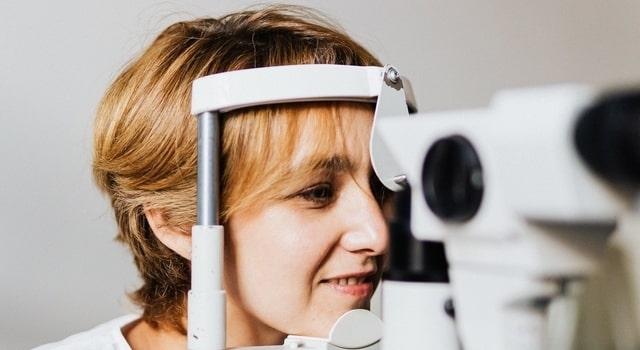
It’s common for people to assume that a vision screening at school, work, or even at the DMV provides a complete picture of their eye health. However, there’s a big difference between a basic vision screening and a full, comprehensive eye exam. At Eason Eye Care, we believe understanding these differences is crucial for maintaining long-term eye health.
What is a Vision Screening?
Vision screenings are often quick tests that aim to identify potential vision problems, such as nearsightedness, farsightedness, or difficulty seeing certain distances. These tests are commonly performed by school nurses, pediatricians, or volunteers at community events. Screenings usually involve reading letters from an eye chart or looking through lenses to check for basic refractive errors.
While vision screenings can detect specific issues, they are limited in scope. Their primary goal is to flag noticeable problems that may interfere with daily activities, such as driving or reading the board at school. They don’t typically assess the overall health of your eyes or detect underlying conditions.
What is a Comprehensive Eye Exam?
In contrast, a comprehensive eye exam is a detailed evaluation performed by an eye doctor, such as an optometrist or ophthalmologist. During this exam, your eye doctor will check your vision for refractive errors and examine your eyes' health using advanced diagnostic tools. The goal is to identify any underlying conditions that might not immediately affect your vision but could cause long-term damage.
A comprehensive exam typically includes several different tests:
- Visual acuity tests to determine the sharpness of your vision.
- Refraction tests to find the precise prescription for corrective lenses.
- Eye pressure measurement to screen for glaucoma.
- A thorough examination of the retina and optic nerve to check for signs of diseases such as macular degeneration or diabetic retinopathy.
This more in-depth approach provides a clearer picture of your eye health and can help catch diseases in their earliest, most treatable stages.
Why a Comprehensive Eye Exam is Essential
While vision screenings serve an essential function, they are not enough to ensure the health of your eyes. Many severe eye diseases, such as glaucoma or cataracts, can develop without noticeable symptoms. By the time you notice a problem, it may be too late to reverse the damage. A comprehensive eye exam helps identify these issues early on, often before any symptoms arise, allowing for timely treatment that can protect your vision.
In addition, your overall health is closely linked to your eye health. During a comprehensive exam, your eye doctor can spot early signs of systemic conditions like high blood pressure or diabetes, which can severely affect your eyes.
How Often Should You Have a Comprehensive Eye Exam?
The American Optometric Association recommends that adults have a comprehensive eye exam every one to two years, depending on their age, risk factors, and whether they wear corrective lenses. Children and older adults may need more frequent exams. At Eason Eye Care, we encourage regular visits to ensure that your eyes are healthy, and your vision is the best it can be.
Make Your Eye Health a Priority
A vision screening can help detect common vision problems, but it’s not a substitute for a comprehensive eye exam. At Eason Eye Care, we provide thorough exams that assess your vision and evaluate your eyes' health, helping to prevent or manage eye diseases. Prioritize your eye health by scheduling a comprehensive exam with us today at Thomasville.

